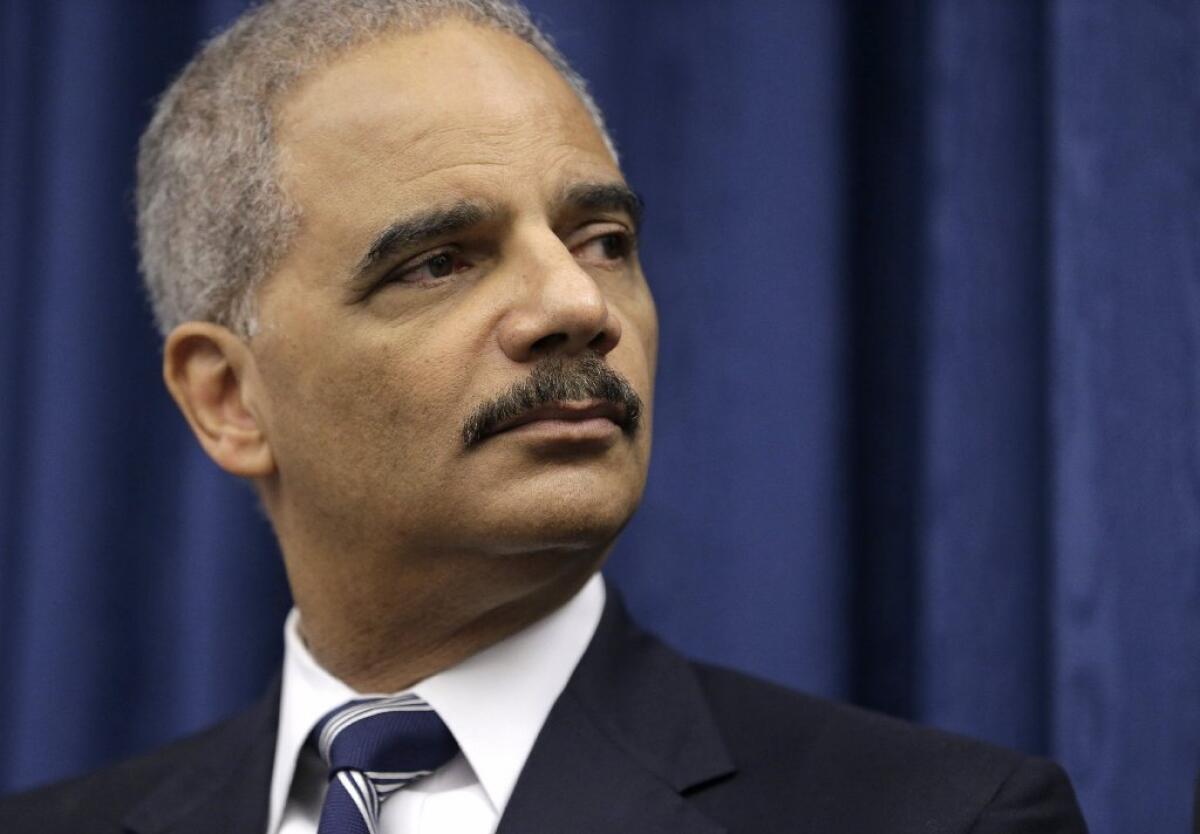Editorial: New federal guidelines to limit racial profiling fall short

Atty. Gen. Eric H. Holder Jr. released new guidelines last week aimed at limiting profiling by federal law-enforcement officers. Though he should be commended for tackling the issue, the new guidelines leave much to be desired.
Their goal is to restrain the odious practice of profiling — in which law enforcement targets individuals based on their appearance or affiliation rather than their behavior — and to broaden restrictions on profiling beyond the existing categories of race and ethnicity to include gender and gender identity, national origin and sexual orientation. It would have been nice if Holder had explained why such additions were necessary — has there been an unrecognized problem with law enforcement targeting women, for example? Still, it is reasonable to conclude that using ancestry or a physical characteristic as an indicator of suspicious behavior is “unfair, promote[s] mistrust of law enforcement, and perpetuate[s] negative and harmful stereotypes.”
The Justice Department’s reach in this area, unfortunately, is limited. The guidelines apply only to federal law enforcement officials and not to local police departments like those at the center of recent profiling controversies, unless they’re serving on joint federal task forces.
Most troubling about the new guidelines is the carve out for federal agents charged with enforcing immigration laws within 100 miles of the border, and for Transportation Security Administration agents at airports and other transportation hubs. In the general proscriptions, federal agents may use only characteristics of the defined categories in tandem with trustworthy information. For instance, if a witness describes a suspect as a 30-year-old Latino driving a blue car, federal agents can stop and question people fitting that description without being guilty of profiling.
But border agents and those of the TSA will retain flexibility in singling out individuals for closer inspection. For example, border agents will still be able to stop an L.A.-born Latino driving within 100 miles of a border based on his physical appearance, civil liberties experts say. FBI agents also can continue to zero in on communities based on demographics rather than evidence of wrongdoing, a galling overreach that has stirred resentment in Muslim communities.
These exceptions to the otherwise sensible rules do not further the aims that Holder seeks. Although it makes sense for TSA agents to look closely at, say, Yemeni-passport holders if there is a credible terrorism threat from a Yemen-based organization, that does not justify treating all Arabs with greater suspicion. And there is no justification for allowing the government to detain, even briefly, a U.S. citizen simply because of his or her Latino heritage.
Holder was on the right track, but he could have, and should have, done more.
Follow the Opinion section on Twitter @latimesopinion
More to Read
A cure for the common opinion
Get thought-provoking perspectives with our weekly newsletter.
You may occasionally receive promotional content from the Los Angeles Times.










